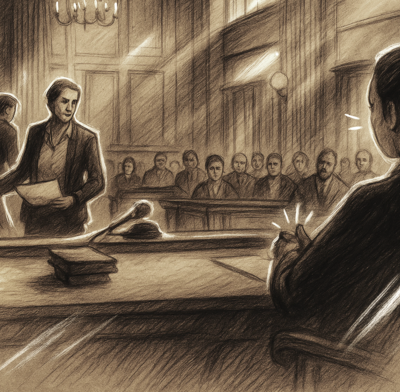Roman Storm’s split verdict in his federal case leaves privacy law murky with big implications for open-source developers.
Roman Storm Trial Verdict Still Leaves DeFi Developers at Risk of Prosecution

On 6 August, after three weeks of testimony and four days of deliberation, a federal jury in New York returned its verdict. Jurors did not agree unanimously on two central charges—conspiracy to commit money laundering and sanctions violations—resulting in a mistrial on those counts.
The looming question is whether open-source developers should be held criminally liable for the misuse of decentralized finance (DeFi) technologies. US federal prosecutors in this case allege that they should be, while Storm’s attorneys, and many within the digital assets space argue that it is unfair and unjust to hold creators liable.
Trial Recap:
Roman Storm is on trial for allegedly operating an unlicensed money-transmitting business that was later exploited by bad actors for money laundering and concealing stolen digital assets. Prosecutors claim Storm was aware of the illicit activity and failed to intervene, making him criminally liable. The case was seen as setting precedent for whether future DeFi developers could be prosecuted if their technologies are misused for illegal purposes.
Still unresolved
The possibility of a retrial, where the prosecution would take Storm to court again using different legal arguments, caused the Ethereum Foundation to donate an additional $500,000 to his legal fees.
Jurors, however, did convict Storm on one count under US statute 1960, tied to knowingly moving criminal proceeds through Tornado Cash. Storm and his co-founders-built Tornado Cash in 2019 as an open-source protocol which allows users to anonymously move cryptocurrencies across different wallets.
The protocol later became a tool for legitimate users and, controversially, for cyber criminals and sanctioned groups including hackers from North Korea.
Hero or villain?
Prosecutors argued that Storm and his partners created Tornado Cash with the intent of aiding criminals, while defence attorneys maintained at the trial that it was designed for lawful privacy use. They claim that Storm cannot under existing US law be held liable for the misuse of his product by third-party actors.
The mistrial on the more serious conspiracy charges suggests jurors were unconvinced Storm had criminal purpose when building Tornado Cash, reflecting skepticism toward the government’s broader claim of liability against for protocol developers.
Legal heavyweights
Nonetheless, Storm is being tried by two experienced prosecutors who have litigated high-profile digital asset cases, including the trial against disgraced FTX founder Sam Bankman-Fried, who was accused of embezzling billions from investors through his exchange.
Beyond crypto, the case underscores tensions between anonymous technologies and law enforcement goals. Prosecutors framed Storm’s lack of oversight into the activities on his service as negligence; the defence likened it to encrypted messaging apps that also deny creators the ability to access user data.
What’s next?
Storm faces the possibility of a retrial on the unresolved counts, while his legal team is expected to appeal the first conviction. US District Court for the Southern District of New York (SDNY), Judge Katherine Failla approved an agreement between both side’s lawyers that would push any additional legal proceedings until at least 18 December of this year.





